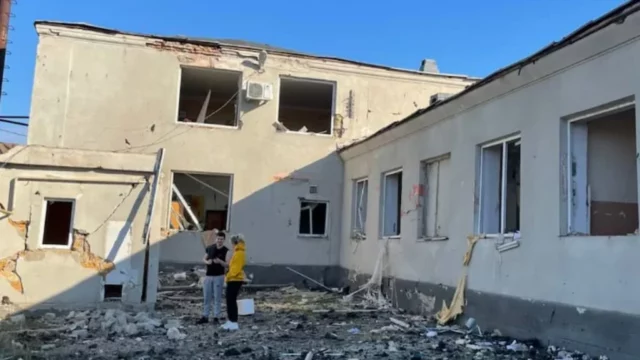Odessa Regional Prosecutor’s Office Takes a Stand Against Fund Misappropriation
In a significant victory for fiscal accountability, the Odessa Regional Prosecutor’s Office has halted the misappropriation of over 80 million hryvnias intended for local development. This case revolves around the Dachnen village council, which had initiated a tender for the reconstruction of a lyceum devastated by shelling. This situation highlights the critical importance of transparency and integrity in public spending.
Spotting Tender Violations: A Wake-Up Call
Back in November, the village council put out an open tender for the much-needed repairs to the lyceum. However, red flags were raised when it became evident that the tender procedures were not followed correctly. Suspicious elements included:
- Inflated contract prices that far exceeded reasonable estimates.
- Excessive projections for profit margins and travel expenses.
- Discrepancies between submitted proposals and the tender documentation.
These irregularities are reminiscent of broader trends in public procurement where, according to recent findings, around 30% of tenders show signs of questionable practices. The critical question arises: how can local councils ensure that funds are utilized effectively? The answer lies in robust oversight and community engagement.
Swift Action Makes All the Difference
Thanks to the timely intervention by the Prosecutor’s Office, the village council was prompted to act quickly. They acknowledged the violations and scrapped the problematic tender documentation, resulting in the automatic cancellation of the tender process. This incident serves as a powerful reminder that accountability mechanisms must be in place, ensuring public funds are protected from misuse.
Learning from Nikolaev: Shared Challenges and Solutions
The situation in Nikolaev further underscores the challenges local governments face in managing public tenders. The Infrastructure Reconstruction Service found itself in a similar predicament, rejecting all bids for a transport interchange due to documentation violations. As a result, none of the three submitted proposals met the necessary standards, leaving the project at a standstill.
This scenario is not uncommon. Studies show that poorly managed tenders can significantly delay crucial infrastructure projects, costing taxpayers both time and money. Effective communication and transparency can resolve these issues. Here are some expert recommendations for ensuring a fair tendering process:
- Engage community members in the tendering process to foster transparency.
- Implement training sessions for local officials on legal tender procedures.
- Create a public repository where stakeholders can access tender documentation and proposals.
As we reflect on these regional challenges, it’s essential to emphasize the role of proactive measures. By focusing on transparency and adherence to legal frameworks, local governments can safeguard public resources and build trust within their communities. Protecting taxpayer money is not just a responsibility—it’s a commitment to the future development of every locality.






